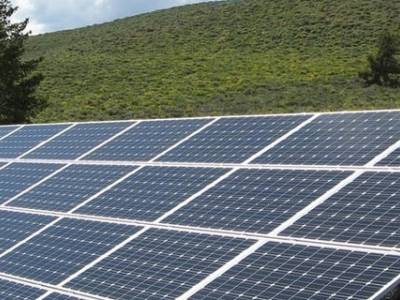An LL.M. in Environmental Law is increasingly relevant LL.M. specialization as activists, businesses, politicians and policymakers grapple with climate change and how to prevent it. It is also an increasingly popular specialization among LL.M. students. Environmental Law programs cover local and international frameworks for environmental protection, the use of natural resources and climate change prevention. Students are also exposed to various related topics including water law, business and trade, indigenous land issues, environmental justice and historic preservation.
A typical Environmental Law LL.M. program may include classes like "Public Policy," "Energy Law," and "Land Use Law,' among others. Sometimes, an Environmental Law LL.M. specialization may be grouped with another related specialization, such as Energy Law. (See the Top 10 LL.M. Programs in Energy Law here.)
The best LL.M.s in Environmental Law may be offered by law schools that host research centers in the space. This insures that the program curriculum is up-to-date and based on current thinking in the field.
An LL.M. in Environmental Law prepares students for work in private law firms, as environment and sustainability advocates, as educators and policymakers, and for work in international bodies. Some Environmental Law LL.M. graduates also end up working in nongovernmental organizations (NGOs), such as the Sierra Club, the World Wildlife Fund, and Greenpeace, among others.
See the Top 10 LL.M. programs in Environmental Law below.
The Vermont Law School offers an LL.M. in Environmental Law, with more than 50 courses in environmental law and policy. Students are able to further specialize in areas like climate change, land use, natural resources and water resources. Vermont Law typical ranks near or at the top of the US News list of best law schools for Environmental Law. The Vermont Law School is also home to the Environmental Law Center, founded in the 1970s as a hub for students, faculty and advocates working together on environmental legal issues.
View School Profile
Based in Los Angeles, California, UCLA is located in the city with possibly the most enviable climate in the world. But this is also where LL.M. students come to learn environmental law and policy, with a comprehensive curriculum covering policymaking, the politics of environmental regulation and climate change research. The school’s Emmett Institute on Climate Change and the Environment focuses on the environmental challenges facing policymakers.
View School Profile
The LL.M. at the University College London (UCL) offers Environmental Law and Policy as a specialism. This specialism covers both environmental and energy law in the EU, international environmental law and how environmental protection interacts with business and trade. The UCL Centre for Law and Environment advances research in how the law addresses climate and energy challenges.
View School Profile
Berkeley Law offers an LL.M. with the possibility to take a Certificate in Environmental Law, which addresses topics in environmental, land use, and natural resources law. The school’s Center for Law, Energy & the Environment focuses on the intersection between climate, energy and sustainable land use. Additionally, the school’s Environmental Law Clinic has offered hands-on legal experience and focuses on the intersection between environmental health and justice. Berkeley is typically ranked at, or near, the top of the US News Best Environmental Law ranking.
View School Profile
Melbourne Law School’s Master of Environmental Law at the University of Melbourne focuses on emerging legal issues like clean technology and climate change law, as well as the management of land, including the ancestral lands of Australia’s indigenous peoples. Melbourne University’s Centre for Resources, Energy and Environmental Law supports research in climate change, sustainable development, urban planning and indigenous rights.
View School Profile
An LL.M. at Utrecht University can make it easier to access international legal establishments like the International Court of Justice and the International Criminal Court, which are also located in the Netherlands. Utrecht University’s LL.M. in Public Law offers a specialization track in Environment and Law of the Sea, where faculty have hands-on experience environmental and oceans governance, at international tribunals and negotiations. The Utrecht Centre for Water, Oceans and Sustainability Law plays a leading role in water and oceans law globally, thanks to its collaboration with international actors.
View School Profile
At the University of Ottawa, the Master of Laws (LL.M.) program offers a specialized track in Global Sustainability and Environmental Law, providing students with a focused avenue to delve into pressing environmental issues. This focused environmental LL.M. track stands out for its emphasis on exploring legal frameworks pertinent to environmental sustainability on a global scale. The university is also home to The Centre for Environmental Law and Global Sustainability, an esteemed research hub dedicated to policy-relevant environmental law research and teaching. The center fosters collaboration among faculty and students, promoting engagement in community outreach initiatives and offering support and training for environmental law researchers and students.
View School Profile
With the NYU Environmental Law Journal, founded in 1991, and the Frank J. Guarini Center on Environmental and Land Use Law, the school has been carving out a substantial research footprint in environmental law. The research is leveraged in NYU’s LL.M. in Environmental and Energy Law, one of the premier environmental programs in the US. In this program, there’s a strong focus on clinics, which help students put their knowledge to use in real-world environments. Particularly notable is a clinic that places students in small island-states, where they can work on environmental issues.
View School ProfileThe Elisabeth Haub School of Law at Pace University offers an LL.M. in Environmental Law that prepares students to work with the scientific, economic and political forces that shape environmental law. Uniquely, this LL.M. offers three paths, where students can choose to study global environmental law, land use and sustainable development law, or energy and climate change law. The school is typically ranked at the top (or very near the top) of the US News Best Environmental Law ranking. The school also offers a Doctor of Juridical Science (SJD) in Environmental Law. Pace Law is home to institutions like the Global Center for Environmental Legal Studies and the Environmental Litigation Clinic.
View School Profile
Georgetown University’s LL.M. in Environmental Law is taught in Washington D.C.,right at the heart of US government, offering students access to environmental policymakers. The program covers natural resources law, land use, international environmental law and historic preservation law, among other topics. The advanced environmental law course offers students the chance to gain practical experience working with real-world clients through the Georgetown Climate Center.
View School ProfileRelated LLM News
Related Articles
How LL.M. Programs Can Prepare a Candidate to Become a Judge
Aug 26, 2024
For many, the journey to the bench is greatly enhanced by pursuing an LL.M. degree.
Preparing for an LL.M. Admissions Interview
Jun 21, 2024
This guide aims to provide you with a roadmap on how to prepare effectively for an LL.M. interview, ensuring you make a lasting impression on the admissions committee.
Climate Change Buoys Environmental Law LL.M.s
Feb 20, 2020
Lawyers need resilience and problem solving skills to cope with the challenges that climate change presents
Energy Law LL.M.s: A Closer Look
May 08, 2017
With global energy consumption going up, LL.M. programs specializing in Energy Law can give lawyers a step up in navigating the complex and ever-evolving industry.














